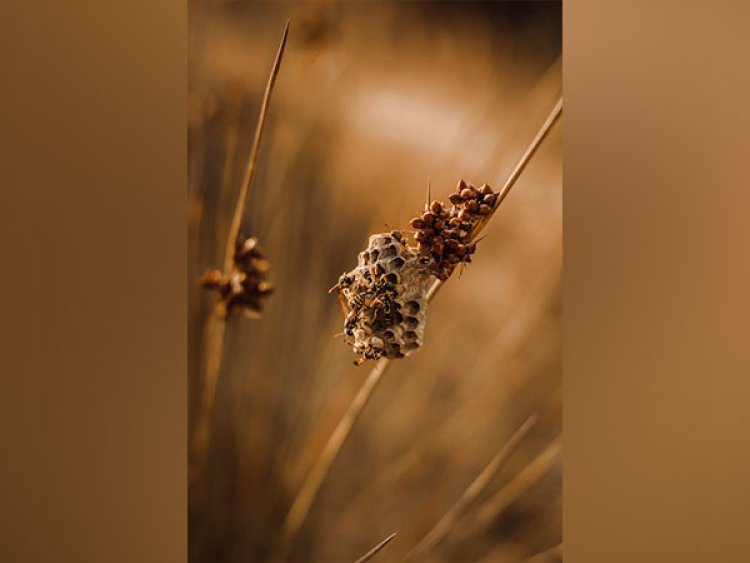Wild bees' development, health are hampered by lack of maternal care: Study

Washington, US: According to researchers, most wild bees are solitary, but one tiny species of carpenter bees meticulously cares for and raises their offspring, which results in significant benefits to the developing bee's microbiome, development, and health.
The maternal care of these carpenter bees (Ceratina calcarata) prevents an overabundance of harmful fungi, bacteria, viruses, and parasites in the early stages of development, similar to the positive effect human mothers can have on their offspring.
Without maternal care, the pathogen load of these developing bees increased – 85 per cent were fungi, 8 per cent were bacteria - which can affect their microbiome, a critical component of bee health, as well as their development, immune system, and gene expression.
This can result in changes in brain and eye development, as well as behavioural changes. The most numerous fungus discovered was Aspergillus, which is known to cause stonebrood disease in honey bees, which mummifies the offspring. In later stages, a lack of care can result in a diminished microbiome, increasing susceptibility to diseases and resulting in poor overall health.
The researchers examined four developmental stages in the life of these carpenter bees, beginning with the larvae stage in both the presence and absence of maternal care.
“There are fitness effects resulting from these fungal infections. We are documenting the shifts in development and the shifts in disease loads, and it is a big deal because in wild bees there is a lot less known about their disease loads. We are highlighting all of these factors for the first time,” said senior author Sandra Rehan, a professor at York’s Faculty of Science.
The developmental changes that occurred as a result of which genes were expressed or suppressed, upregulated or downregulated, as well as disease loads, depending on the presence or absence of maternal care, had an impact on the microbiome and bee health.
From spring to late autumn, these single mothers build one nest a year in the pith of dead plant stems, where they give birth and care for their offspring. Anything that prevents the mother from caring for her young increases the risk of nest predation and parasitism, including excessive spring and autumn stem pruning, and can have serious consequences for their young.
The study, titled The effects of maternal care on the developmental transcriptome and metatranscriptome of wild bee, was published today in Communications Biology. Katherine Chau of York University is a postdoctoral fellow at Mitacs Elevate and the Weston Family Foundation Microbiome Initiative.
“We found really striking shifts in the earliest stages, which was surprising as we did not expect that stage to be the most significantly changed,” said Chau.
“Looking at the gene expression of these bees you can see how the slightest dysregulation early in development cascades through their whole formation. It is all interconnected and shows how vital maternal care is in early childhood development.”
This study provides metatranscriptomic insights on the impact of maternal care on developing offspring and a foundational framework for tracking the development of the microbiome. “It is a complex paper that provides layers of data and shows the power of genomics">genomics as a tool,” said Rehan.
“It allows us to document the interactions between host and environment. I think that is the power of this approach and the new technologies and techniques that we are developing.”
She also hopes it will give people more insight into the hidden life of bees and their vast differences, but also similarities. “Often people see bees as a monolith, but when you understand the complexity of bees and that there are wild bees and managed bees, people are more likely to care about bee diversity,” said Rehan.















































